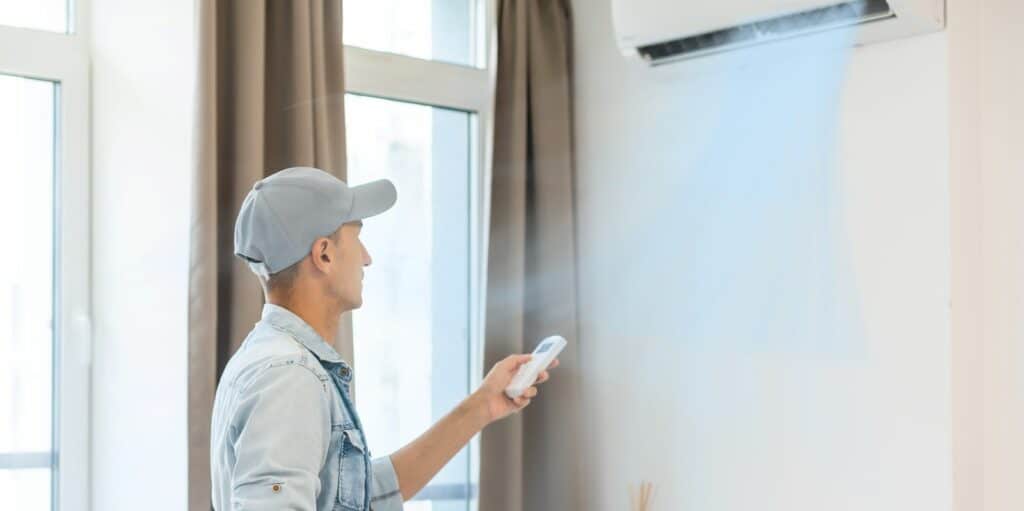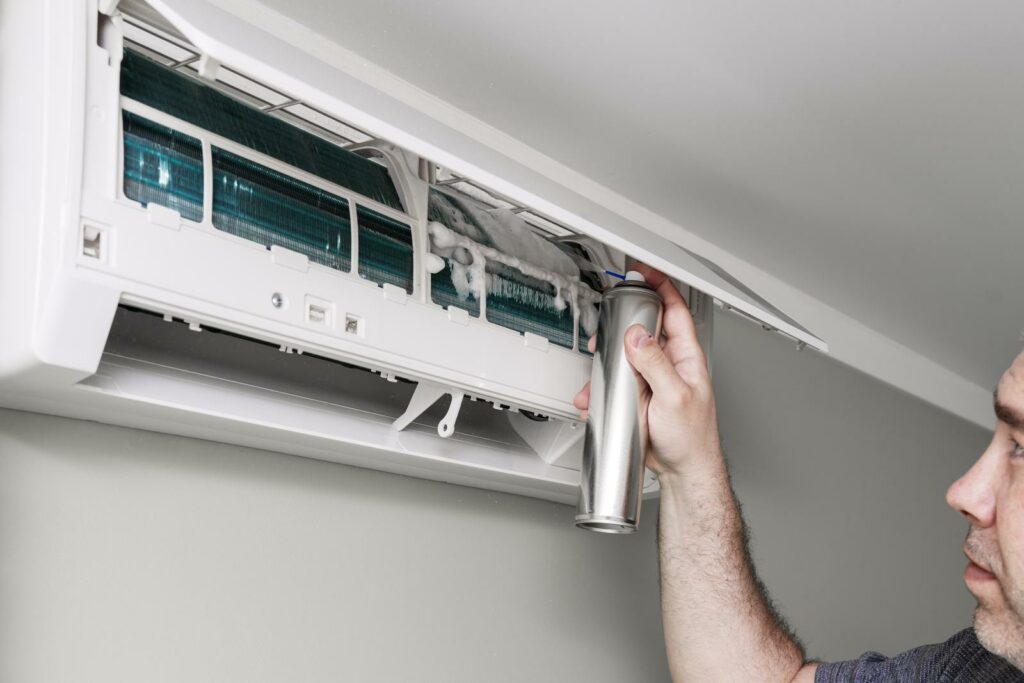The Benefits of Heat Pumps in Tauranga: Efficient Heating for Every Season
Tauranga, nestled on New Zealand’s North Island, boasts a coastal charm that comes with its own set of challenges, particularly for heat pumps exposed to the effects of sea air. The salty coastal breeze can have a significant impact on the performance and longevity of these systems.
Understanding these effects and implementing effective mitigation strategies is crucial for residents seeking reliable heating and cooling solutions in this picturesque coastal city. One of the primary challenges posed by sea air is the corrosive nature of salt particles.
Understanding common issues with heat pumps and implementing effective troubleshooting measures is essential for residents to ensure optimal performance and longevity.
How Do Heat Pumps Work?
Heat pumps operate by extracting heat from the outdoor air during winter, even in cooler temperatures, and transferring it indoors. In summer, the process reverses, expelling warm air from the interior to maintain a comfortable indoor temperature. This inherent adaptability ensures that residents experience consistent comfort without the need for separate heating and cooling systems.
Furthermore, the energy efficiency of heat pumps is a notable advantage, particularly in a city like Tauranga, where sustainability is highly valued. By leveraging the ambient air, heat pumps consume less energy compared to traditional heating methods, reducing both utility bills and environmental impact.
However, in order for it to be effective, follow this article to prevent any effects from the environment on your heat pump.
Sea Air: Corrosion and Salt Build-Up
Tauranga’s proximity to the sea exposes heat pumps to corrosive salt particles. Over time, this can lead to corrosion on external components, affecting efficiency. Regular cleaning with fresh water helps mitigate salt build-up on coils and fins. Consider applying protective coatings to vulnerable parts to create a barrier against salt exposure, preventing corrosion.
As corrosion takes hold, the efficiency of the heat pump diminishes. Corroded components struggle to perform optimally, hindering the heat exchange process. Reduced efficiency means the system has to work harder to achieve the desired temperature, resulting in increased energy consumption.
Residents may notice higher utility bills and, over time, a decline in the overall heating or cooling performance of the heat pump. When installing or replacing components, opt for materials designed to resist corrosion. Choosing aluminium or stainless steel for certain parts, such as brackets or fasteners, ensures these materials are less susceptible to the corrosive effects of salt.
This proactive choice contributes to the overall resilience of the heat pump. Utilise corrosion inhibitors specifically designed for HVAC systems. These inhibitors can be added to the refrigerant or applied to susceptible components to create a protective layer against corrosion. This additional defence mechanism helps mitigate the impact of sea air on the heat pump’s internal components.

Reduced Efficiency
Establishing a routine for cleaning the exterior of the heat pump is fundamental. Using fresh water to rinse away salt deposits on the coils, fins, and other external components helps prevent the accumulation of corrosive salts. Regular cleaning minimises the risk of corrosion and maintains the efficiency of the heat pump.
Corrosion and salt accumulation can impede the heat exchange process, resulting in reduced efficiency. If residents notice a decline in heating or cooling performance, it’s crucial to inspect and clean the coils regularly. In severe cases, professional maintenance may be required to address internal components affected by corrosion.
Sea air may carry moisture and impurities that affect the air quality inside the heat pump. This can lead to mould growth and other indoor air quality issues. Regular cleaning of internal components and proper ventilation help mitigate the impact on air quality, ensuring a healthier living environment.
Increased Wear and Tear
The corrosive nature of sea air contributes to increased wear and tear on various heat pump components. From fan blades to electrical connections, accelerated deterioration can compromise the overall lifespan of the system. Routine inspections and timely repairs are essential to address wear and tear, preserving the longevity of the heat pump.
The corrosive effects of sea air contribute to accelerated wear and tear on various components of the heat pump. From fan blades to electrical connections, the system undergoes more extensive wear than in non-coastal environments. This increased wear can lead to frequent breakdowns, reduced lifespan, and the need for more frequent repairs.
Address any issues promptly. If signs of corrosion or wear are detected during routine maintenance or inspections, ensure that repairs are carried out promptly to prevent further damage and maintain the heat pump’s efficiency. Timely repairs contribute to the long-term reliability and performance of the heat pump in a coastal setting.
Impact on Warranty
Residents should be aware of the impact of sea air exposure on warranties. Manufacturers often specify maintenance requirements to maintain warranty validity. Adhering to recommended maintenance schedules, including professional inspections and timely repairs, ensures not only the longevity of the heat pump but also safeguards warranty coverage.
Sea Air: Protective Coatings and Materials
Consider applying protective coatings to vulnerable components. Anti-corrosion sprays or coatings, often offered by manufacturers, create a barrier against salt exposure. Consulting with professionals or the heat pump manufacturer can help identify suitable coating options, adding an extra layer of defence against the corrosive effects of sea air.
Heat pumps designed for coastal areas often feature protective coatings and materials to resist corrosion.
Homeowners in Tauranga should consider investing in models equipped with galvanised exteriors, coated coils, and corrosion-resistant alloys. These features enhance the heat pump’s ability to withstand the challenges posed by salt-laden sea air. Manufacturers recognise the challenges posed by sea air, and many offer heat pumps specifically designed for coastal environments.
These models often incorporate protective coatings and materials, such as corrosion-resistant alloys, to mitigate the impact of salt exposure. Investing in a heat pump with galvanised exteriors, coated coils, and other corrosion-resistant features enhances the system’s ability to withstand the corrosive effects of sea air.
Where feasible, install a physical barrier, such as a fence or vegetation, to shield the heat pump from direct exposure to salt-laden winds. This strategic measure helps reduce the amount of salt settling on the unit, providing an additional layer of protection against sea air impact.
Elevate the heat pump unit to minimise contact with salt-laden ground moisture. Mounting the unit on a platform or brackets can provide additional protection against salt accumulation at the base. This elevation strategy helps safeguard the unit from corrosive effects originating from the ground.

Sea Air: Proactive Maintenance Tips
Tauranga residents can adopt proactive maintenance practices to mitigate heat pump issues.
The coils within a heat pump play a pivotal role in the heat exchange process. In coastal areas like Tauranga, regular and thorough cleaning of these coils is paramount. Salt deposits on the coils hinder the transfer of heat, diminishing the system’s efficiency. Regular cleaning prevents salt build-up, ensuring optimal heat exchange and system effectiveness.
This includes regular rinsing of the outdoor unit with fresh water, applying protective coatings, and scheduling professional inspections. These measures enable early detection of potential problems, allowing for timely interventions and preserving the efficiency of the heat pump.
Establishing a routine for cleaning the exterior of the heat pump with fresh water helps rinse away salt deposits. Applying protective coatings to vulnerable components creates a barrier against salt exposure. Scheduling regular professional inspections, especially before and after the harsh sea air exposure months, allows certified technicians to identify early signs of corrosion or wear and perform timely repairs.
Ensure proper ventilation around the heat pump. Good airflow helps disperse salt particles and moisture, preventing them from settling on the unit. Avoid enclosing the heat pump in a way that restricts air circulation, as adequate ventilation contributes to minimising the impact of sea air
Maintain indoor humidity at optimal levels to prevent moisture from circulating within the heat pump. Excess moisture can exacerbate corrosion and compromise internal components. Because, monitoring and controlling indoor humidity levels contribute to the overall resilience of the heat pump in a coastal environment.
Choosing Coastal-Friendly Models
When installing or replacing heat pumps in Tauranga, consumers should prioritise models explicitly designed for coastal environments. These units often come equipped with features such as galvanised exteriors, aluminium fins, and other corrosion-resistant elements. Therefore, opting for a coastal-friendly model from the outset can significantly reduce the impact of sea air on the heat pump’s performance.
Consider investing in a heat pump specifically designed for coastal environments. These models often come equipped with features such as coated coils, galvanised exteriors, and other corrosion-resistant elements. Opting for a coastal-friendly model ensures the heat pump is equipped to withstand the challenges posed by salt-laden sea air.
Importance of Professional Installation
Professional installation of heat pumps holds particular significance in coastal areas like Tauranga, where the corrosive effects of sea air are pronounced. Ensuring a tight seal during installation prevents salt-laden air from infiltrating internal components. Professional installers have the expertise to implement protective measures, reducing the risk of corrosion and optimising the heat pump’s performance over its lifespan.
Professional Inspections
Schedule regular professional inspections, especially before and after the harsh sea air exposure months. Certified technicians can identify early signs of corrosion or wear, allowing for timely repairs and maintenance to extend the heat pump’s lifespan. Professional inspections are essential for detecting and addressing potential issues that may arise from sea air exposure.
Minimising the impact of sea air on heat pumps in coastal areas like Tauranga requires a comprehensive approach that addresses the corrosive effects of salt particles. Residents can adopt several strategic measures to safeguard their heat pumps and ensure optimal performance in the face of sea air exposure.
So, before you hit the waves, just remember the effects of sea air on heat pumps in Tauranga necessitate a proactive and informed approach to maintenance and system selection. By understanding the challenges posed by the coastal environment and implementing effective mitigation strategies. Residents can ensure their heat pumps operate optimally, providing reliable heating and cooling solutions in the face of sea air exposure.
Proactive Measures
By incorporating these comprehensive strategies. Residents in coastal areas like Tauranga can actively minimise the impact of sea air on their heat pumps. Therefore, these proactive measures not only enhance the efficiency and longevity of the heating and cooling systems but also contribute to a more resilient and reliable performance in the face of coastal challenges.
Contact us now at Goldstar to maintain your heat pump and keep it running at its optimal performance while still enjoying the coastal landscape
Ph: 0800 864 964

